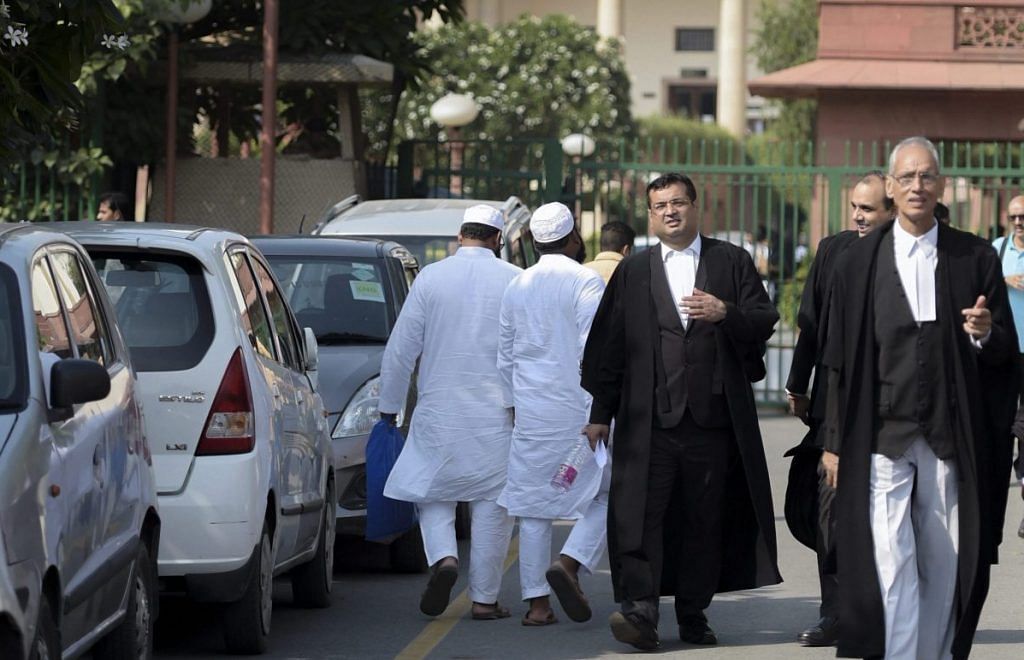The Citizenship Amendment Act 2019 has undoubtedly driven a deep chasm into the heart of not only the Indian polity and the society at large. Although the challenge to the constitutional validity of the amendment is already before the Supreme Court, the popular sentiment against it has spilled over into the streets. Nevertheless, keeping the biases and opinions aside, it is highly unlikely that the Supreme Court will strike down the amendment as being violative of the Constitution of India.
Crucial changes in the Citizenship Act 1955, made through the Narendra Modi government’s 2019 amendment, have two distinct parts. The first pertains to special citizenship provisions for people belonging specifically to Hindu, Sikh, Buddhist, Jain, Parsi and Christian communities from the neighbouring Muslim-majority countries of Afghanistan, Bangladesh, and Pakistan; the second grants wide powers to the central government to cancel the registration of Overseas Citizenship of India (OCI) cardholders.
The primary ground on which the Citizenship Amendment Act (CAA) is being challenged is its ostensible violation and abuse of the ‘right to equality’ enshrined in the Indian Constitution. The petitions before the Supreme Court have urged that not only is religion-based discrimination arbitrary and unreasonable but that the amendment is also under-inclusive. It cherry picks only certain communities and ignores the persecution faced by millions of others who do not belong to the six religious groups specified in the CAA.
At the very outset, certain fallacies in the formal submissions made before the Supreme Court must be quelled. First, no constitutional court can question the intention or motive of any government in enacting any legislation; consonantly, the constitutionality of any lawfully enacted legislation has to be first presumed by a constitutional court before scrutinising it. Second, the mere possibility that a law may be abused does not render it unconstitutional ex facie and thereby, under-inclusivity of a statute does not become a ground for challenging its validity. Any such classification, therefore, does not need to be scientifically pure and all-embracing; a legislature is perfectly empowered to differentiate and classify between dissimilar groups/classes/batches/categories. Evidently thus, many of the grounds presented before the Supreme Court are liable to be rejected at sight.
Also read: Chandrashekhar Azad writes from Tihar: Every police bullet is aimed at the Constitution
‘Aliens’ must enter legally
The most crucial factor that would belie any challenge to the constitutional validity of the CAA is that, first, it pertains to ‘aliens’ rather than citizens; and second, the exclusive power to legislate vis-à-vis ‘foreign jurisdiction’, ‘citizenship, naturalisation and aliens’, ‘extradition’ and ‘admission into and emigration and expulsion from India’ rests with Parliament.
While considering the case of non-citizens – ‘aliens’ – the doctrinal approach of determining ‘intelligible differentia’, coupled with a ‘rational nexus’, need not be adopted at all. Undoubtedly, ‘person’ in Article 14 of the Constitution covers ‘aliens’ as well. However, a crucial distinction that must be specified here is that such rights would pertain only to those people who have lawfully and legally entered the Indian territory. Every sovereign State, and so too the Republic of India, has the exclusive right to allow, refuse entry, or expel any alien/non-citizen. The equality clause, as per Article 14 of the Constitution of India, insofar as it guarantees rights to every ‘person’, insofar as it pertains to aliens, would only operate where it is not subject to any other disability emanating by way of any provisions of the Constitution and so too a lawfully enacted statute/legislation/bye-law/rule.
In conclusion, it is apt to mention that the origins of the CAA 2019 can be traced back to the Nehru-Liaquat Pact of 14 April 1950, whereby both India and Pakistan agreed to protect minority rights. However, in light of the incessant persecution that minorities face in the three neighbouring countries, especially Pakistan, it befalls the Indian state to ensure the obligations of the 1950 pact are carried out.
Averments before the Supreme Court have also been made to extend the amendment to protect Muslim minorities such as Shias and Ahmadis and it is no one’s case that the Indian government must not consider that. However, the validity of the CAA cannot rest on India’s policy decision to exclude certain sections because, as already mentioned above, under-inclusivity does not render the 2019 amendment to the Citizenship Act unconstitutional. It must be highlighted that the amendment, when viewed in the context of the Nehru-Liaquat Pact, concerns itself with the minorities as existed back then, and Ahmadis were declared a minority group only as late as in 1974 vide the Second Amendment to the Pakistan Constitution. Shias, in essence, continue to not be considered as a minority group by the Pakistani government.
The authors are practising advocates in Delhi. Views are personal.
